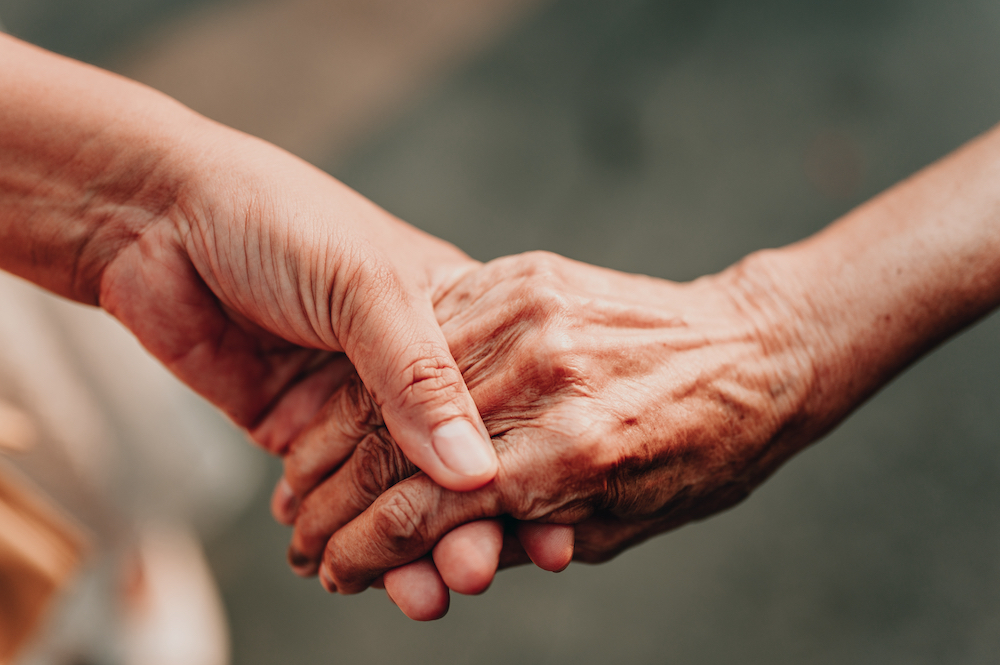When you are the primary caregiver for your senior loved one, there may be lots of trials and tribulations, even if they’re currently in good health. But, if your loved one is experiencing cognitive decline, then it might be very hard to care for them on your own. Aside from memory loss, dementia and Alzheimers can also cause agitation, memory changes, delusional behavior, agitation, and more. When these signs start to appear, it might be time to get specialized help. Our memory care homes in Sacramento, CA, are always available to help answer questions.
So when is the time right for making the transition into memory care? These signs will help you determine the best timing:
1.) You Are Always Feeling Worried for Your Loved One’s Safety
Your loved one might live at home, have a caretaker taking care of them part-time, or you might be taking care of them full-time. If your senior’s symptoms have become unmanageable, and this is making you feel stressed every day worrying about their safety, then it might be time to help them transition into memory care.
These communities are created to cater to seniors grappling with dementia. Additionally, they are fully staffed with caregivers 24/7 who are trained to handle dementia problems, ensuring that your loved one is kept safe.
2.) You Are Worried About Your Own Safety
When dementia worsens, it might lead to your loved one experiencing increased confusion and even drastic shifts in their personality. This may also result in threats of violence or possibly the enactment of violent acts.
If this is happening, and their outbursts and agitation are making you or your family members feel nervous and unsafe, then it might be best to start the transition to our memory care homes in Sacramento, CA. We have staff that are trained to de-escalate dementia-related anger and help them get through these episodes in a safe and productive way.
3.) You Feel Extremely Tired All the Time
You are exhausted in every possible way. If you’re feeling that way, then this is certainly not a good sign. When you care for a loved one with dementia, it might cause you to neglect your personal health and happiness. While devoting all of your time and energy to a person in need is a noble pursuit, overextending can also hamper your own ability to take care of them.
However, if you choose to move them to memory care senior living, that will help you alleviate a part of your stress and still let you remain involved in caregiving decisions.
4.) Your Loved One Is Neglecting Their Finances
There are many things to watch out for that can point towards harmful neglect of personal finances. For instance, if they’re living alone, remember to keep tabs on their checkbook or mailbox. Are they getting any late notices for bills? Have they been given eviction or foreclosure notices? Or perhaps they haven’t been keeping their billing and account statements organized?
These things should not be ignored. It puts your loved one’s safety at risk, either from being evicted or having essential utilities cut off, as well as possibly falling victim to scammers. You’ll want to have a frank conversation with your loved one and then make a decision on where to go from there.

5.) They Are Wandering or Become Easily Disoriented
Let’s say that your loved one is prone to bouts of confusion and wandering about. In that case, it would be wise to consider memory care senior living as an option. Wandering always has the potential to be dangerous for seniors, but this is especially true during the winter and summer months when the weather can be more extreme. If the wandering senior isn’t located quickly enough, things can get really bad for them fast.
Memory care facilities are more secure than your average building, with armed doors and windows that can’t be opened without the necessary key card or code. Additionally, outdoor spaces are generally closed off so that your loved one cannot accidentally wander off without an escort or caregiver with them.
6.) Their Living Space Has Become Unhygienic
One of the earliest signs of dementia is hoarding and deteriorating living space. Obviously, if your loved one is normally a neat and tidy person, then drastic shifts in the opposite direction could be a dead giveaway that something isn’t right. Likely, that something is the early stages of dementia. This would be the right time to consider memory care.
More possible signs: piles of mail, stale or rotten food in the refrigerator, dishes piling up in the sink and not getting washed, etc. These conditions should not be permitted to continue as it creates an unsafe, unhealthy, and dangerous environment for your senior loved one to live in. These things won’t be an issue in our memory care homes in Sacramento, CA, since we include housekeeping services as well as laundry assistance.
7.) They Are Feeling Isolated And/or Lonely
It’s common for seniors to experience feelings of loneliness and depression. But, for those with dementia, these feelings can get even worse because their condition makes them not want to leave the house or socialize at all.
It’s easier to encourage a loved one to get outside and socialize more if they are living in a memory care community with other seniors in similar situations. Additionally, these communities keep a monthly calendar of activities that keep their residents engaged and help them make new interpersonal connections.
8.) Your Loved One Is Going Through Physical Changes
There are many telltale physical signs to watch out for that could indicate something isn’t quite right. These include random bruises, changes in posture, mobility issues, and weight loss. For example, weight loss could indicate that your loved one is forgetting to eat. Bruises could mean that they’re experiencing falls regularly and forgetting to tell anyone, and letting these problems go untreated.
It goes without saying that this is a dangerous situation for them to be in and could result in even worse medical problems later on. If they are living in a memory care community, they’ll be watched and monitored closely. There will always be a caregiver keeping tabs on their overall well-being and nutritional dietary intake.






